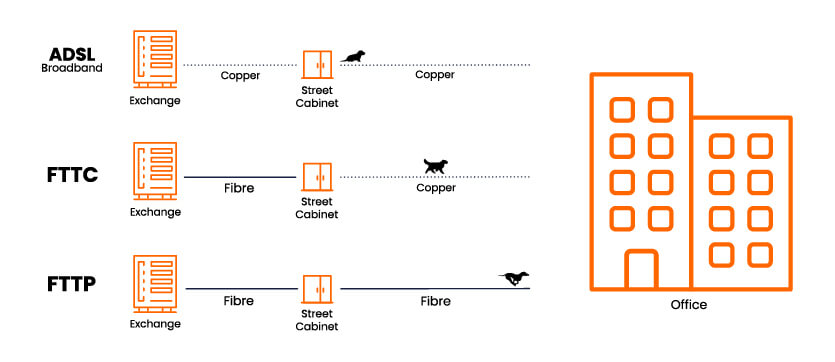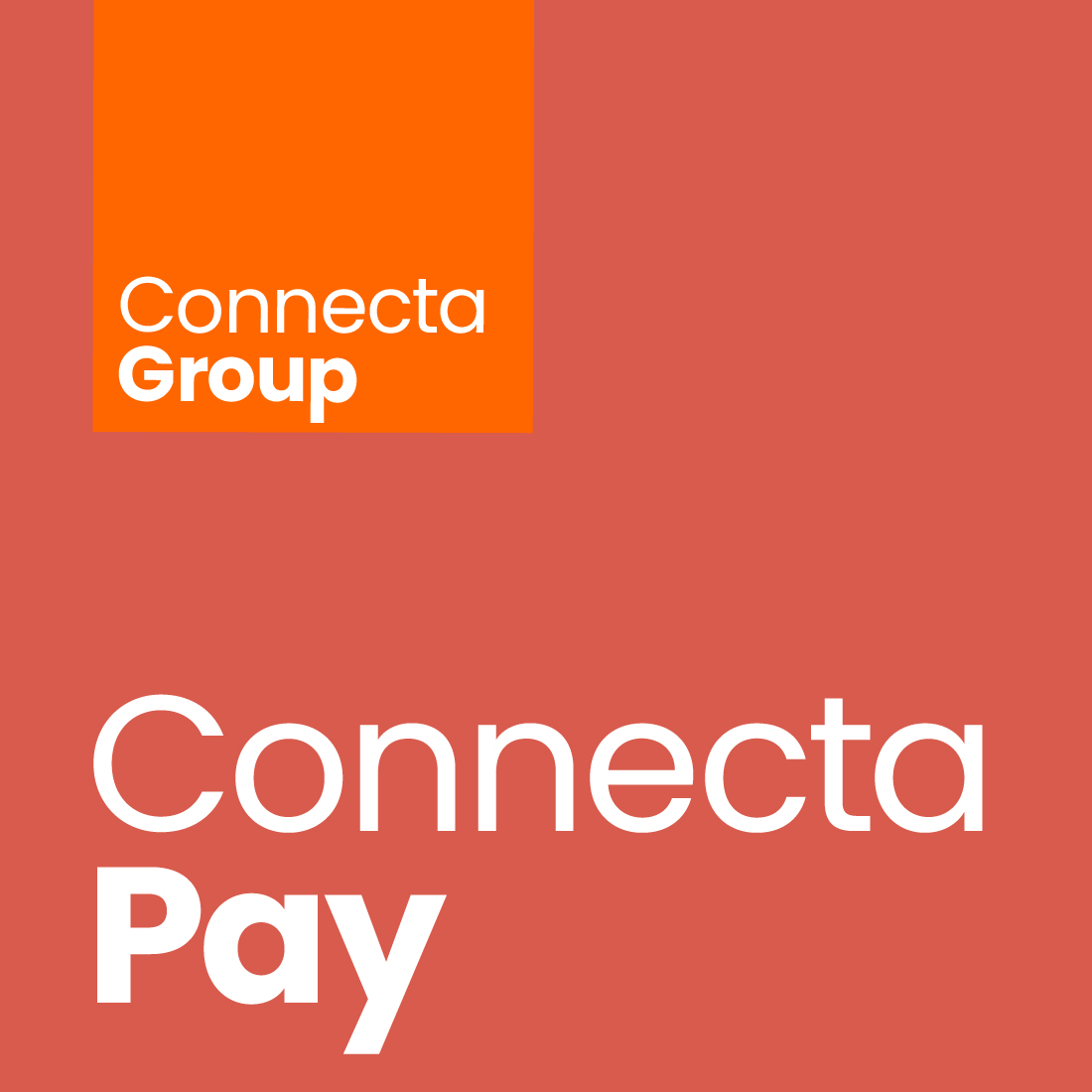
Everything you need to know about the 2025 ISDN switch-off
If you don’t know much about the upcoming ISDN switch-off, you’re far from alone. Studies have shown that a large number of UK SMEs are unaware of the looming deadline, and are mostly unprepared for it.
So, what is there to know? The headline here is that in 2025 telephony changes forever. That’s when the old ISDN and PSTN public telephone lines are finally switched off for good. In other words, 2025 marks the end of what we all know as the landline, and the moment everyone has to start making all their calls through the internet.
Although 2025 might seem some time away, it’s actually the end of a process that has already begun. ISDN lines are already unavailable for purchase in several areas, and over 200 exchanges across the country will be in this “stop sell” phase by January next year.
After that, the process picks up speed and no new ISDN lines will be available to purchase anywhere in 2023, which means not only will your business not be able to add new lines, you won’t be able to make any changes – however minor – to the existing services you already have. And in 2025 it finally pulls the plug permanently.
So even though 2025 is four years away, small businesses need to start thinking about what the ISDN switch-off means for them sooner rather than later. You don’t want to be in a position where you’re rushed into adopting an unsuitable telephone system because the deadline is looming, and you didn’t do your homework in advance.
That point can’t be stressed enough, because internet-based telephony (also known as VoIP – Voice over Internet Protocol) comes in lots of different varieties, and choosing the right one for your needs can hugely improve your business communications while also making them more cost effective. But choose the wrong one and the opposite can be true.
In the rest of this article, we’ll tell you everything you need to know about the ISDN switch-off, and why it’s an opportunity to make your business more productive and efficient. We’ll also explain why partnering with a trusted local supplier is the best way to ensure you get the right telephony upgrade for your needs. Unlike large national carriers, at ConnectaPhone we understand the challenges businesses in our area face, and how the local telecoms infrastructure can be used to meet them.
If you’d like to know more about what ConnectaPhone can do for your business,
book a meeting today
What is the 2025 switch-off?
In short, the ISDN switch-off is the realisation that old telephone technology isn’t fit for modern communications. Quite simply, the technology behind traditional landlines is ageing, slow and liable to break.
When ISDN was first implemented in the UK in the 1980s, it was a revelation, because for the first time it allowed voice and data to travel over the same line. But today we want to do so much more with our telephony and communications solutions, and ISDN struggles to cope. So, the decision was made to switch off the ISDN, to speed up the widespread adoption of more advanced and efficient communication technologies.
So, it’s not just that ISDN is becoming obsolete. It’s also that a better, more cost-effective alternative is now widely available. Those of you who remember the early days of Skype might shudder at the memory. Back in the early Noughties, internet telephony could be a deeply frustrating experience, with regular drop-outs and missed connections.
If you think your phone lines need upgrading – get in touch!
But as connectivity has progressed, so has VoIP. Internet-based telephony is now robust and reliable, and can do so much more than traditional ISDN. It also comes in a number of different flavours, including:
- Basic VoIP. Even basic VoIP services come with conferencing, voicemail and other useful features, and can be considerably more cost-effective than traditional landlines.
- Unified Communications (UC). UC brings all your business communications tools together in one package, from voice and video calls to conferencing, chat and email. It can also include collaboration tools like presence and screen share.
- Hosted voice. Hosted voice puts all your communications infrastructure in the cloud, which means you no longer have to house, manage and maintain telephony hardware. It also means your complete service is available from anywhere, on any device, wherever you have an internet connection, and it’s simple to scale. Plus, you take the same phone number with you wherever you go.
In short, the ISDN switch off is happening because VoIP offers business more choice, greater functionality and easy scalability, and a more cost-effective service.
For more information on the 2025 switch-off, read our blog.
How to prepare for the 2025 switch-off
For all those reasons businesses of all sizes should start preparing now for the 2025 switch-off. It’s hugely important that you get the right VoIP service for your business needs, and a partner with local knowledge can certainly help in that regard. We know your business challenges, and the communications options that are available to help you solve them.
So, when you’re looking for a partner for your switch to VoIP, local knowledge is important. A prospective partner also needs to be a telecoms specialist, of course, and preferably one with long experience in the sector.
Most businesses depend on being available to customers on the telephone at all times, so also check that a supplier offers business-grade Service Level Agreements (contracts stating how quickly they’ll fix a fault) so you can be confident you’ll never be offline for long. Read testimonials from other businesses in the area so you know that, when it comes to designing, implementing and supporting VoIP solutions, your prospective partner has an impressive track record.
And what about the solution itself? There’s lots to consider here. You’ll need to take into account what you use telephony for today, and what you might want to use it for in future. Are you likely to be opening new sites, or equipping staff for remote or hybrid work? Are you looking to grow? Would built-in video conferencing or other UC elements be useful?
All these factors play a part in determining the kind of VoIP solution you need, but again, a good partner is worth its weight in gold here. We can help you audit your current use and predict future innovation, and work with you to arrive at a solution that is both future proof and within budget.
There’s lots to think about, and we strongly advise that you start now. The ISDN switch-off will come around quicker than you might think, and the sooner you adopt internet telephony the sooner you can start enjoying its benefits.
For more on preparing for 2025 (and beyond), read our blog.
The differences between copper and fibre connectivity
Another thing you have to think about before adopting VoIP is the connectivity that makes it possible. While most connections can handle basic VoIP calls, it’s also true that the better your connectivity, the more simultaneous VoIP calls you can make and the more advanced features your solution can support. This is especially true if your team are regularly using internet services such as Office 365, Adobe Creative Cloud and Salesforce, which could cause bottlenecks as your bandwidth becomes overloaded.
Basically, if you want a super-productive workforce, crystal clear voice calls and super smooth video, for example, you need the right level of connectivity to match your ambitions. And the fact is, too many small businesses are still on ADSL broadband. ADSL transfers data across copper telephone wires, which makes it a bit like the ISDN of connectivity solutions. It was great once, but it’s becoming increasingly obsolete as technology advances.
Fibre-based connectivity is the new standard for internet access, coming in two different flavours.
Fibre to the Cabinet (FTTC) is now the connectivity solution of choice for even the smallest of businesses. FTTC transfers your data across fibre optic cables from the internet to your local street cabinet, hopping onto copper wire for just the last bit of the journey to your premises. Fibre is much quicker than copper, with FTTC promising download speeds of up to around 80Mbps (compared to around 20Mbps for ADSL).
FTTC’s big brother, Fibre to the Premises (FTTP) is the most scalable, cost-effective high-bandwidth connectivity solution to future-proof your business. Because the fibre connection goes all the way to your site, instead of stopping at the closest cabinet, there’s less chance of an outage and no bandwidth bottleneck, meaning speeds up to 1Gbps. This ensures that operations can run hundreds of phone lines without worrying about dropped calls, low-quality audio or call volume affecting other internet-based systems.

Get in touch to discover what’s available in your area!
Whichever technology is right for your business, fibre is a boon for your business, in the following ways:
- Digital transformation. Fibre gives small businesses the bandwidth and scalability they need to experiment with a new generation of digital services.
- Cloud adoption. More and more of your business-critical data and applications are hosted in the cloud (think Office 365, G-Suite, QuickBooks, Salesforce). Fibre lets you adopt a range of business-enhancing cloud solutions.
- Unified Communications and hosted voice. Fibre allows you to revolutionise your business communications with UC and the ‘work anywhere, anytime’ benefits of hosted voice.
- Simultaneous use. With fibre you can have more employees online at the same time, without any slowdown of services.
For more on the differences between copper and fibre, read our blog or get in touch.
Hosted voice is the best solution for your business
As the ISDN switch-off draws ever closer, what internet-based alternative should you choose? The precise combination of features and tools will depend on your business needs, but as specialists in the field we’d strongly advise all companies to choose a hosted solution over an on-premise alternative.
Partly, that’s because the pandemic has ushered in a new era of work. Employees want flexibility, even with lockdown over (at least for now). They want to be able to work, communicate and collaborate from anywhere, whether that’s the office, their back bedroom or the coffee shop down the road.
A hosted solution lets them. To cut a long story short, hosted voice lets you or your employees make and take professional business calls from anywhere, as long as you have an internet connection. You take the same number with you wherever you go, and have access to the complete feature set (voicemail, video, call routing and text, for example) wherever you happen to be.
In a nutshell, hosted voice future-proofs your business communications, and because the infrastructure is hosted elsewhere, you don’t have to manage or maintain any on-premise equipment. That makes hosted voice more reliable, too.
For more on hosted voice and its business benefits, read our blog.
Fibre means more than just faster speeds
While most people know that fibre connectivity is faster than copper, what you might not know is that it’s also more resilient. Fibre signals don’t degrade in bad weather in the way copper equivalents can, and fibre is less likely to break. That makes it perfect for your VoIP communications, which depend on robust broadband. Why not make the ISDN switch-off an opportunity to upgrade your connectivity as well as your communications?
You’ll be glad you did. Fibre gives you the consistent, reliable connectivity you need to drive digital transformation:
- Fast and reliable data transfer means you can exploit more cloud services.
- Better bandwidth means you can grow your team without worrying about applications slowing down.
- If you run an e-commerce operation and take orders online, reliable connectivity is crucial.
- Fibre gives you the speed and resilience to let dispersed teams communicate and collaborate effectively – with the right UC solution, they can even work on the same document together in real time.
All this makes running your business more cost-effective. Fibre is more reliable, so you’re offline less frequently. It also lets you adopt business-enhancing cloud services, which promote productivity, collaboration and ultimately business growth.
Fibre means much more than just faster speeds. Read our blog to find out more.
Why buy everything from a hosted telecoms specialist?
The easiest way to upgrade your telephony solution and the infrastructure you need to support it is to get both from a specialist supplier.
By calling on the local knowledge and specialist expertise of ConnectaPhone, for example, you benefit from a provider who can assess both your communications and connectivity needs, to ensure you can run a hosted voice solution effectively.
That saves you time and, by bundling connectivity and voice together, most likely money too. It creates ongoing efficiencies, because you have one point of contact for advice, billing and troubleshooting, rather than two or more.
At ConnectaPhone we sell and support Gamma’s excellent PhoneLine+, the simplest replacement to your phone line that has been designed to offer even more functionality at the best possible price. And, if your connectivity does need a speed boost, we can also supply the broadband you need to make sure it’s reliable.
PhoneLine+ offers all the key features of a traditional business telephone line (including Voicemail, Call Divert, Call Hold, Contact Directory, Call Transfer, Call Forwarding and Number Withholding) without any of the hassle of an on-premise solution.
And it’s not just limited to a handset either. With PhoneLine+, you can take calls on your mobile, computer or tablet, all using the same phone number, to make sure you’re reachable whether you’re at home, in the office or on the go.
Benefits of PhoneLine
Future-proof
When the ADSL and PSTN networks are turned off for good in 2025, you’ll need an internet-based calling solution and PhoneLine+ is one of the most simple, cost-effective replacements available.
Easy to use
With a simple app on all your devices, you’ve got easy access to your contacts, calls, voicemail and more. Plus, you can always call us if you ever get stuck
No waiting
We can get you set up in a matter of hours, port your number over and you’re calling before you know it!
Less to worry about
You never had to ‘update’ your landline, so we don’t expect you to update PhoneLine+. We’ll do it all for you.
Manage your time
With the ability to set out-of-hours, let people know when you’re in meetings and set-up call diverts, you can stay reachable when you want to, and prevent calls coming in when you need to focus.
And if you have any questions or issues, you’ll get in touch with a local provider, with local presence and a clear understanding of local circumstances. That means you’re always in safe hands.
For more about bundled services, PhoneLine+ and ConnectaPhone, read our blog.
Email: hello@connectaphone.uk.com
65a, London Road, Sevenoaks, Kent, TN13 1AU.
© 2021 Connectaphone T/A Connectagroup
Registered in the UK No. 02454540
VAT No. 565 3626 25




